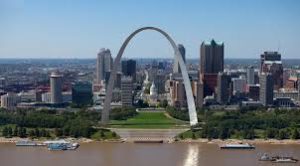
St. Louis Mayor Lyda Krewson recently signed a law establishing a mandatory Building Energy Performance Standard in the city, which is the second-largest in Missouri.
The new standard is the first building performance standard in the Midwest and just the fourth of its kind nationwide, following the adoption of similar standards in New York City, Washington, D.C. and Washington state according to GreenTech Media.
Buildings are responsible for nearly 80 percent of St. Louis’ greenhouse gas emissions. The city will not achieve its goal of a 100 percent reduction in greenhouse gas emissions by 2050 without aggressive action to decarbonize buildings.
The new standard applies to municipal, commercial, institutional and multifamily residential buildings 50,000 square feet and larger, which covers roughly 1,000 buildings in the city. The performance metric codified in the standard is energy use intensity — a site’s energy use divided by its gross floor area — as calculated by Energy Star’s Portfolio Manager online tool.
Performance standards must be set for each building type by May 4, 2021, with the first compliance deadline coming in May 2025. The standard will be set to ensure that 65 percent of the buildings in each property type will have to save energy to comply with the law. The standards will be reviewed and updated every four years.
“We strongly believe that a [Building Energy Performance Standard] policy will provide significant impact in driving down our overall [greenhouse gas] emissions,” Rajiv Ravulapati, an analyst with the City of St. Louis Building Division, told Greentech Media in an email.
The new building performance standard is the latest in a series of moves to improve the energy efficiency of buildings in St. Louis.
In St. Louis, as was the case in New York City and Washington, D.C., benchmarking requirements predated a building performance standard. By requiring owners of large buildings to document and disclose performance metrics such as energy and water usage or greenhouse gas emissions each year, benchmarking laws make it possible to track performance over time, to identify underperforming buildings in a portfolio and to compare a building’s performance to its peers. St. Louis’ benchmarking law, which took effect in 2017, also applies to buildings 50,000 square feet and larger.
In 2018 St. Louis was one of 25 U.S. cities selected to participate in Bloomberg Philanthropies’ American Cities Climate Challenge. Under the two-year program, Bloomberg Philanthropies provides cities with technical support, as well as a staffer funded by the organization, to assist with the development of carbon-reduction initiatives.
Source: GreenTech Media






